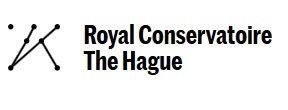Bachelor of Music – University of the Arts The Hague Royal Conservatoire
The Hague, Netherlands
Reviewed by NVAO
- Valid from
- 31-08-2017
- Valid until
- 30-08-2023
Contact information
- Institution
- University of the Arts The Hague Royal Conservatoire
- Website
- https://goo.gl/Z2SSrh
- Country
- Netherlands
Assessment report
Bachelor-of-Music-Royal-Conservatoire-The-HagueExecutive summary
The Bachelor of Music was assessed by Netherlands Quality Agency (NQA). NQA convened an assessment committee which studied the self-evaluation report and undertook a site visit on 1 and 2 June 2016 in The Hague.
Standard 1: Intended internationalisation
The programme receives the assessment good on Standard 1.
The audit panel is of the opinion that the internationalisation goals of the programme are clear, adequately documented and widely shared and supported by the programme’s stakeholders. The internationalisation goals include measures which contribute to the quality of teaching and learning. The development of intercultural competencies could, however, be addressed in a more elaborated way. The internationalisation goals are adequately operationalised in sufficiently verifiable objectives. The audit panel recommends to further improve the quality of these objectives by incorporating qualitative and/or quantitative elements.
Standard 2: International and intercultural learning
The programme receives the assessment excellent on Standard 2.
The programme’s internationalisation goals are reflected by its internationally validated intended learning outcomes, which have an intrinsic international dimension. They include learning outcomes which are explicitly related to the development of those international and intercultural skills that are necessary to work in the international professional field of music. The panel commends the programme on its choice to use internationally validated intended learning outcomes. International and intercultural competencies are assessed as an integral part of the regular course assessments and the assessment methods used are suitable. The audit panel applauds the use of international external examiners in the final exams and recommends the programme to make this practice structural. The graduates demonstrably achieve the intended (international and intercultural) learning outcomes.
Standard 3: Teaching and Learning
The programme receives the assessment excellent on Standard 3.
The audit panel is of the opinion that the content and the structure of the curriculum and the highly international learning environment provide excellent conditions for achieving the (intrinsically) international and intercultural intended learning outcomes. The teaching methods used are very suitable. The audit panel is impressed by the extent to which the programme uses international external perspectives to improve the quality of the curriculum.
Standard 4: Staff
The programme receives the assessment excellent on Standard 4.
The composition of the staff and the staff’s wide international experience, excellent intercultural competences and language skills all facilitate the achievement of the (intrinsically) international and intercultural intended learning outcomes very well. The broad spectrum and quality of services provided to the staff is excellent and corresponds to the staff composition and needs. The services facilitate international experiences, intercultural competences and language skills.
Standard 5: Students
The programme receives the assessment excellent on Standard 5.
The composition of the student group is highly international and the programme offers its students excellent opportunities to gain internationalisation experiences. The services that are offered by the programme are also very good. The audit panel is particularly enthusiastic about the ‘DUWO House of Music’.
To conclude, the audit panel is impressed by the highly international character of the Royal Conservatoire, which is visible in almost all aspects of the programme, especially in the realisation of international and intercultural learning, teaching and learning, staff and student group composition and the services and internationalisation experiences that are offered to both staff and students. The audit panel applauds the programme for its open mind and the extent to which it deliberately seeks (international) external perspectives to improve itself.